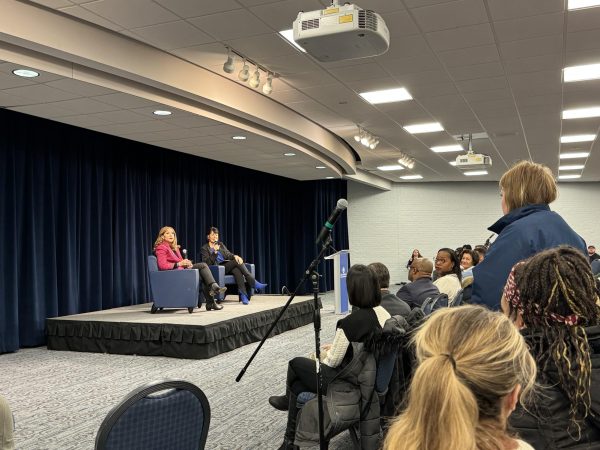Book Taught at Breton Downs Elementary Incites Debate
Recently there have been fierce debates from PTA meetings to the halls of state legislatures about the practice of banning certain books in schools. This is due to concern about whether the topics of certain books are appropriate for students to read in school.
Instances of this debate can be seen all throughout the country. The school board of McMinn county in Tennessee recently got a lot of media attention due to their controversial decision to ban the Pulitzer Prize-winning book Maus, a graphic novel about the author’s father’s experience during the Holocaust and the ongoing effects on their family.
The issue also came up in the recent gubernatorial elections in Virginia. Then Republican candidate for governor, Glenn Youngkin ran an ad about Laura Murphy, a Virginia mother who tried to get the book Beloved by Toni Morrison banned from her son’s school.
And East Grand Rapids is far from isolated from this debate. We too have had, and are still having to reckon with, discussions about whether books with mature topics should be banned. Many of the books that are part of our curriculum have mature topics. For instance, both of the aforementioned books that have caused controversy at other schools are taught at East.
“When I first started we had a couple of books that parents objected to and people tried to ban,” English department Chair Joy Baranoski said.
And recently a new controversy emerged at East involving banned books. A book about a transgender student was read at Breton Elementary, enraging some parents.
Many of these parents went to a recent school board meeting to express their disapproval of Breton’s decision to read this book to elementary children.
However, the English department has consistently defended their decision to teach books with mature topics because of the important messages that they believe these books possess when taught properly.
“We’ve had a few books that deal with the topic of rape, like The Kite Runner, that’s a key part in the book. But we also talk about what the character learns from it, like why it happens and what he’s meant to learn from it,” Baranoski said.
While it seems to removing books from the school reading list has been a hotly debated topic among many parents, the student body seems to be more supportive of the administration’s decisions regarding teaching books with mature topics. Many students seem to have faith that the school is picking books that are important for students to read due to interesting and important topics, even if these books do involve mature subjects.
“I think that sometimes [books with mature topics] can seem a little vulgar but I usually trust that it adds to the literary merit,” Jasper Mitchell ‘24 said.
The student body is not uniformly supportive of the administration’s decisions to include books with controversial or mature topics. There are some students who seem to be wary of the possible detrimental effects of the mature material in certain books that are part of the school curriculum.
“Anything that a teacher teaches in such a public context as a classroom inherently creates a level of normalization regardless of intent. For instance, incredibly graphic depictions of war, death, or explicit scenes in movies or books, in a classroom especially, creates desensitization to the immensity of certain topics,” Logan Becker ‘23 said.
But even students and parents who are wary of books with certain mature topics being taught in the classroom do seem to realize that some of these books have important educational benefits and that we should be very careful in deciding to ban a book.
“However, this is difficult [to be absolute about] because school can also increase sensitivity or awareness of important topics as well,” Becker said.
This article appeared in the February edition of The East Vision.




